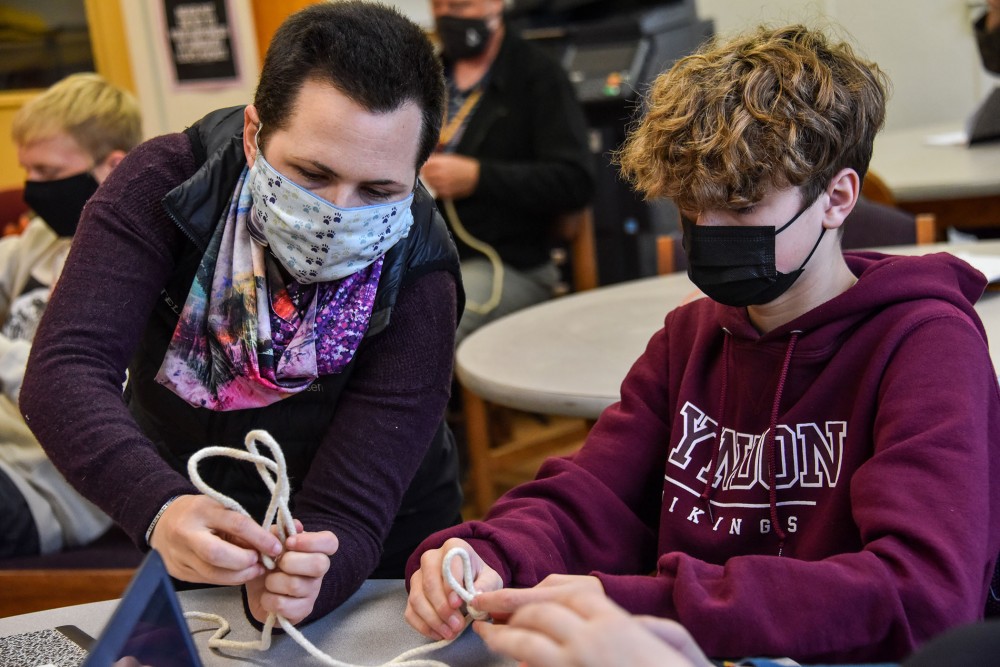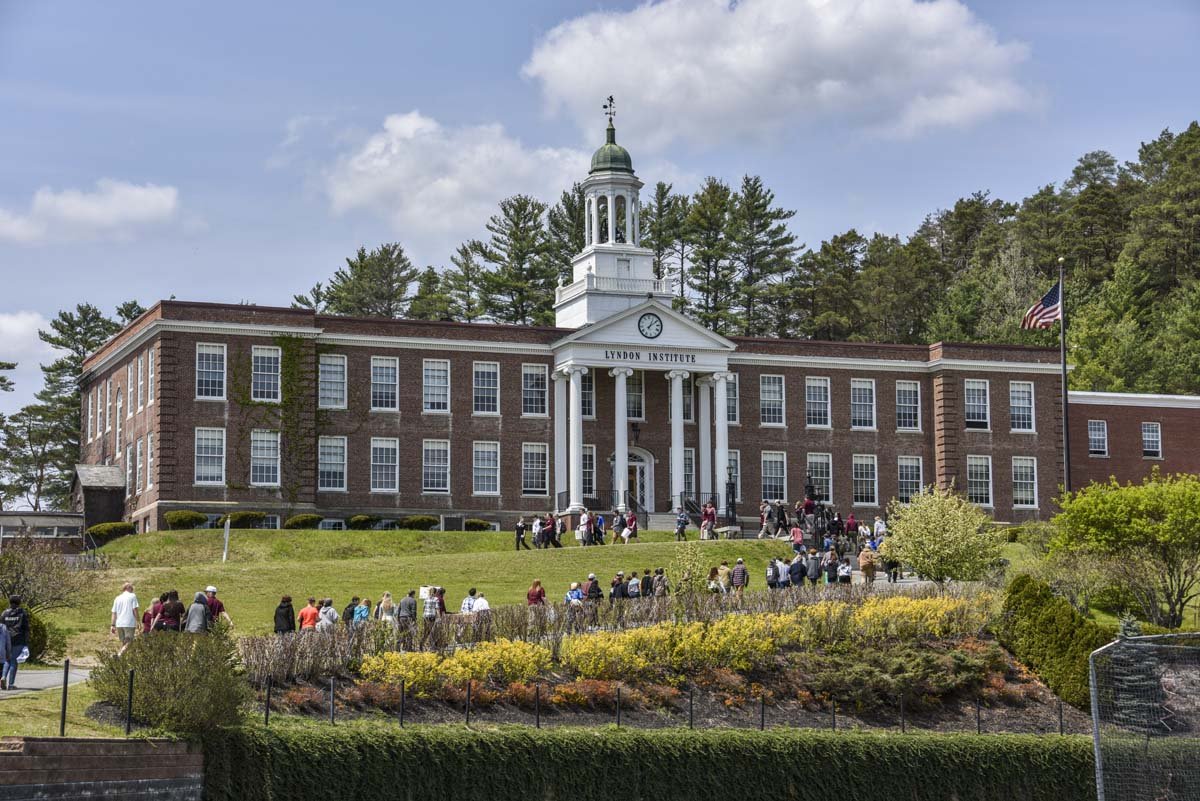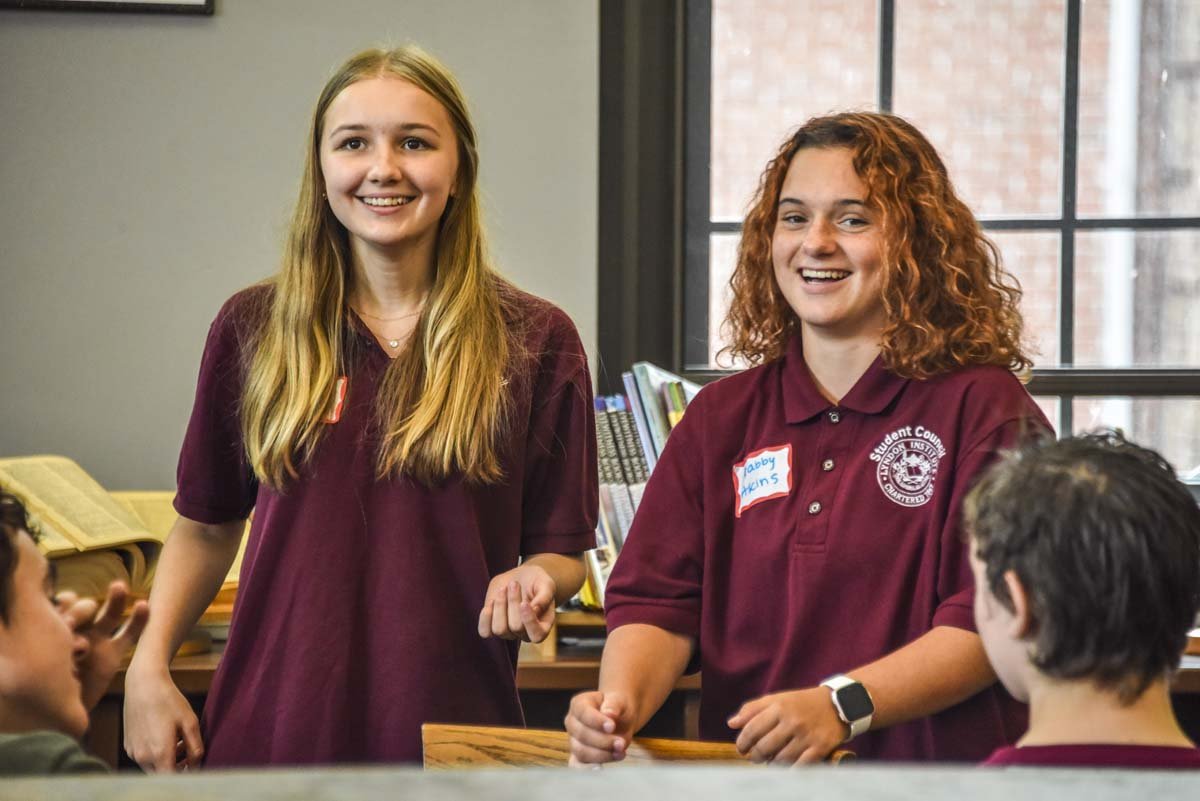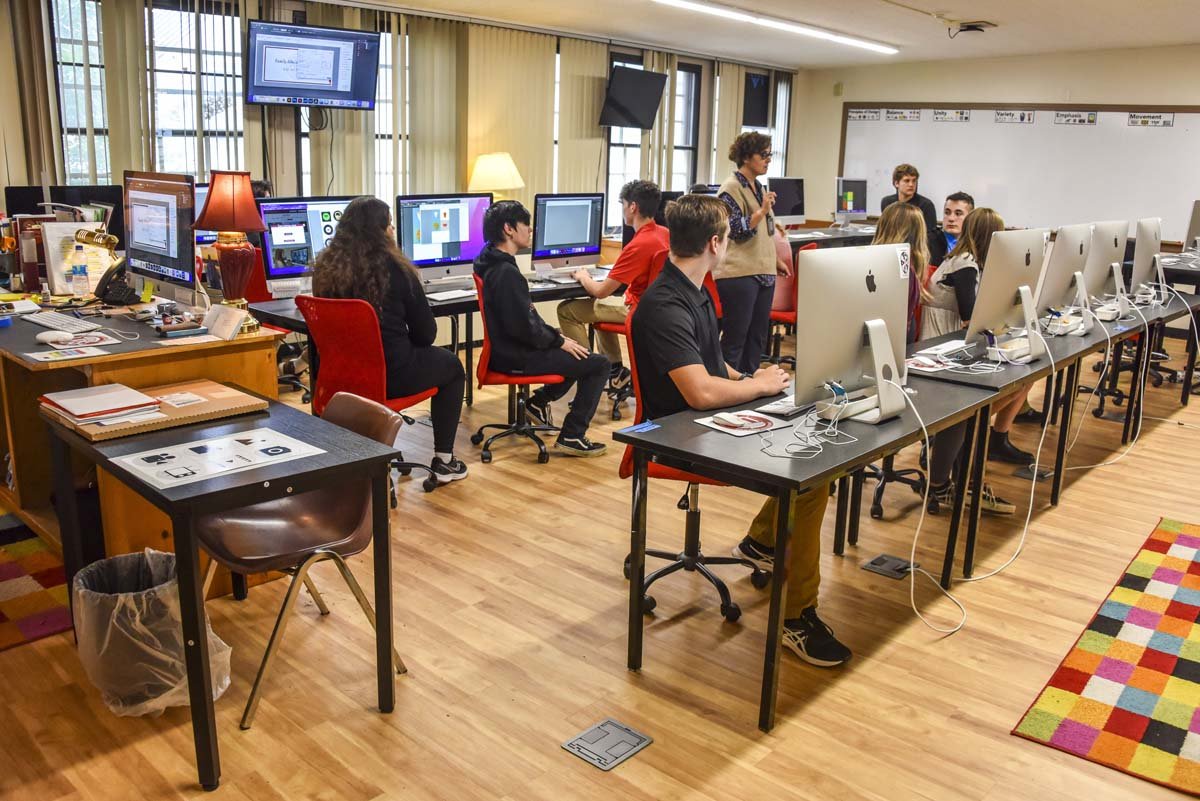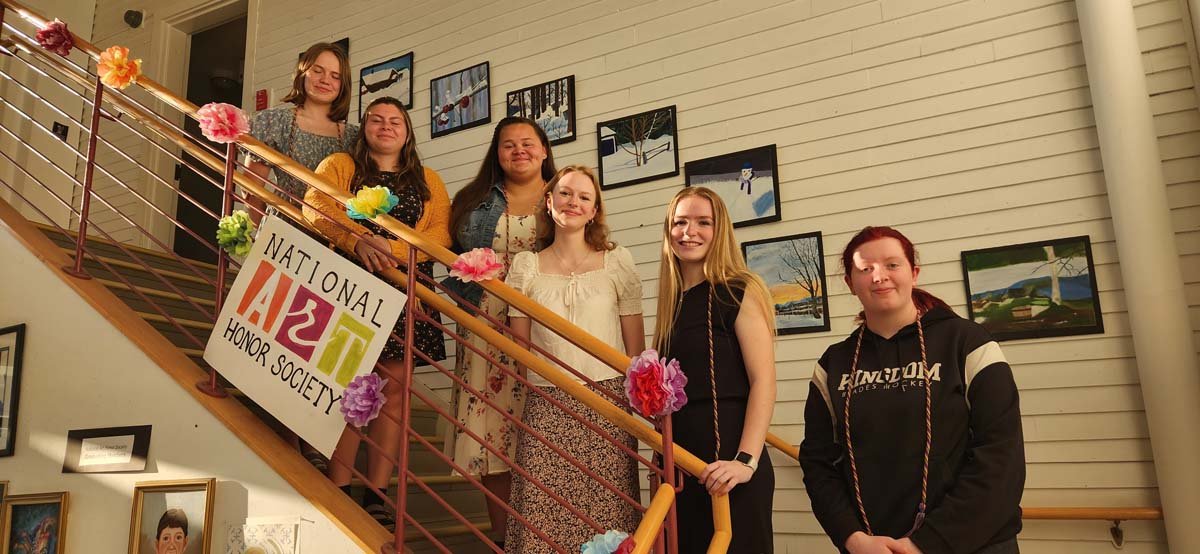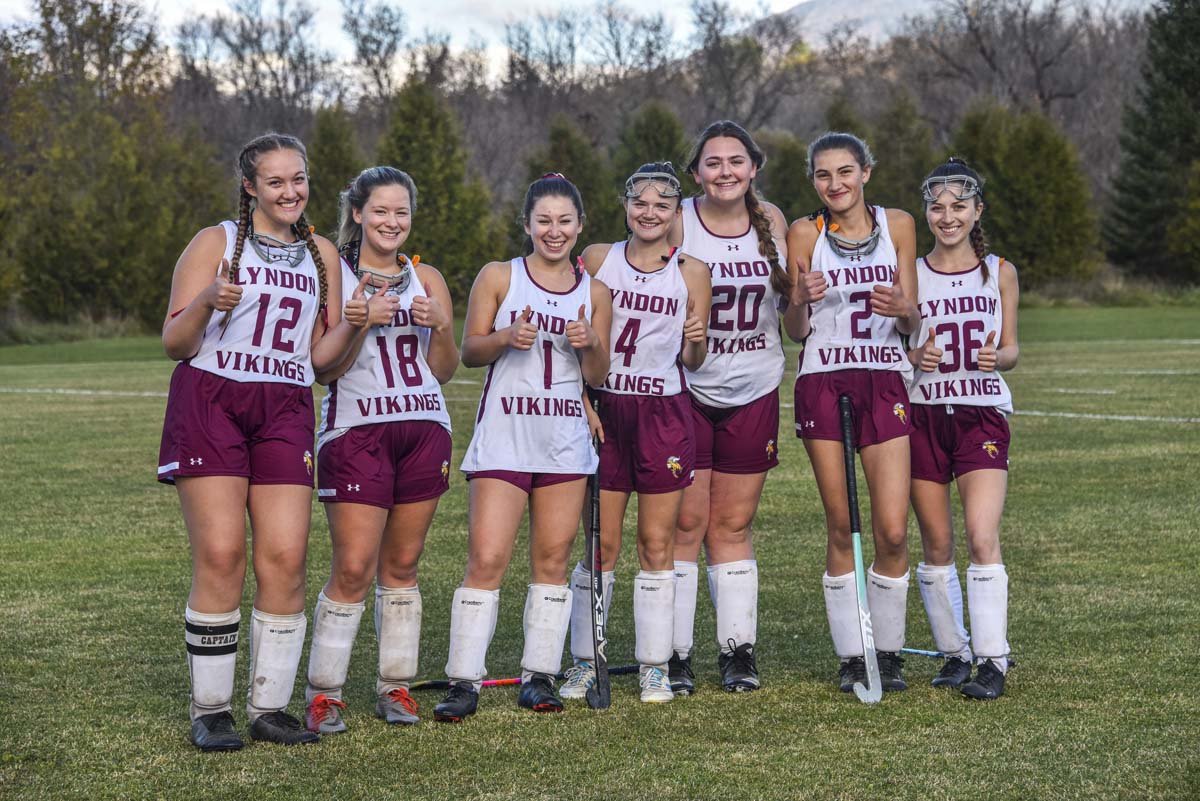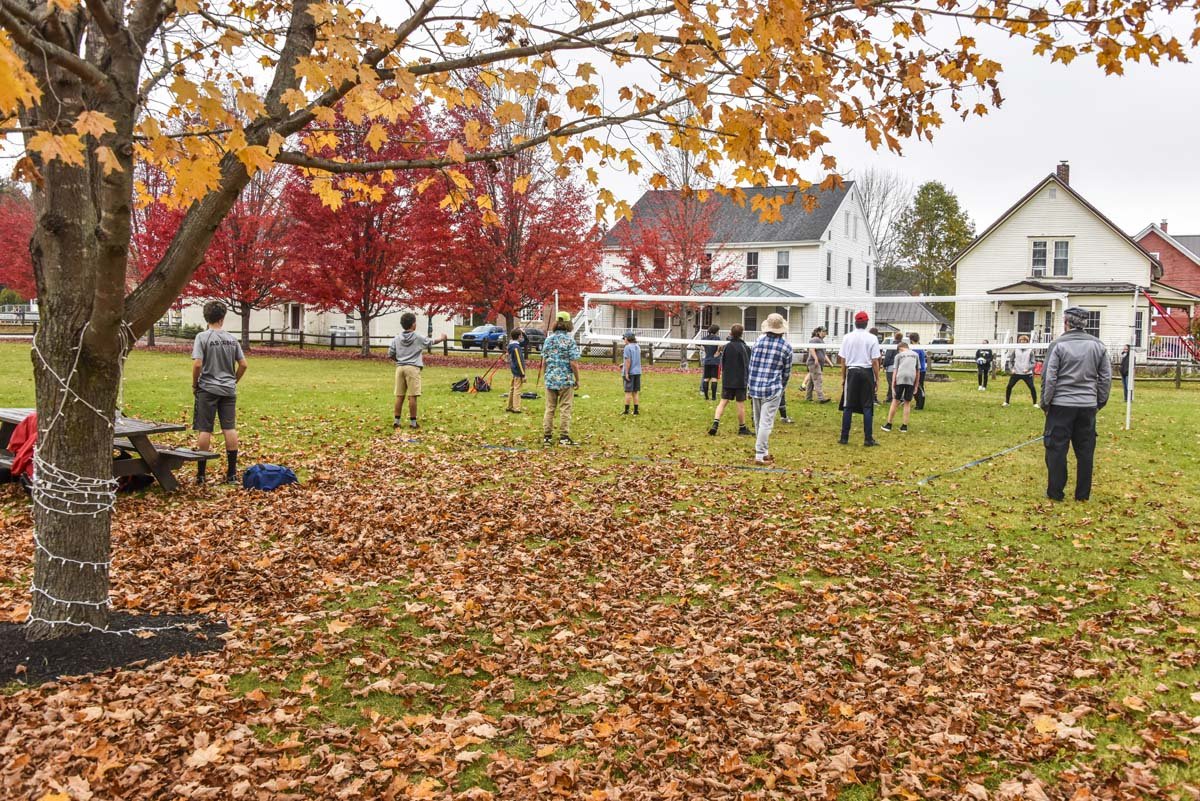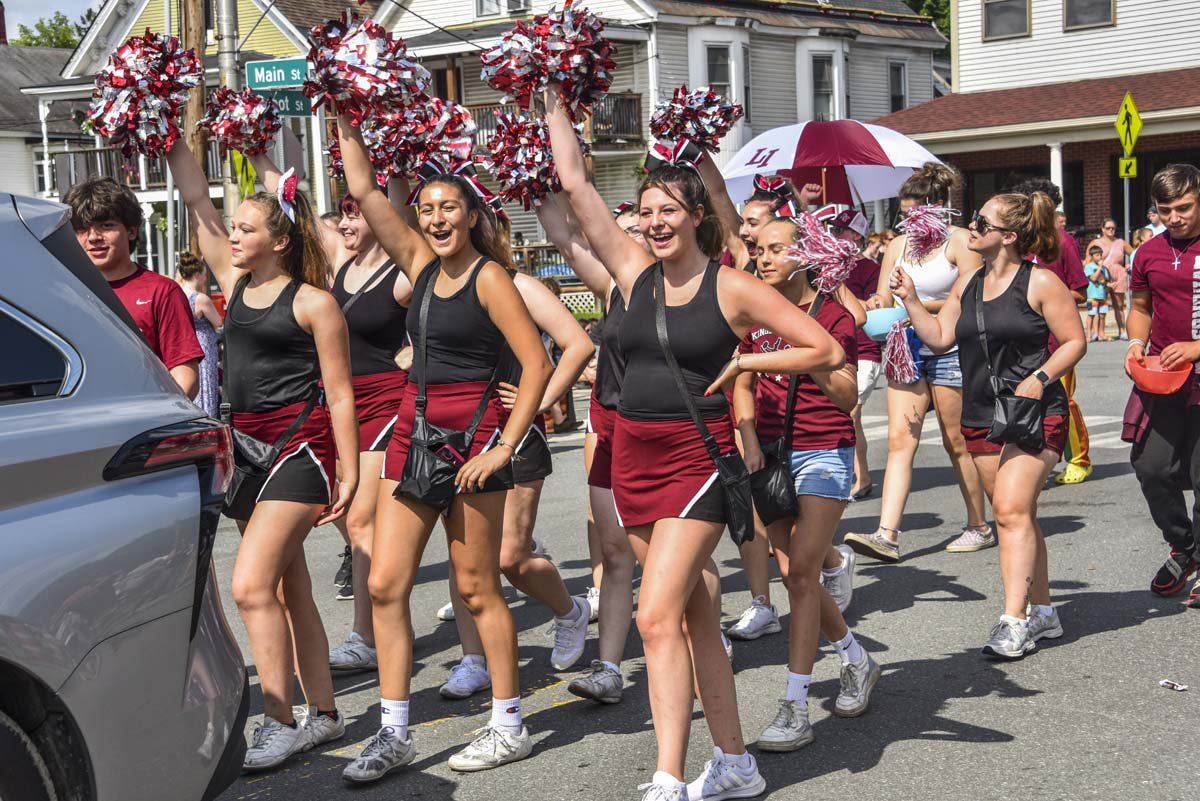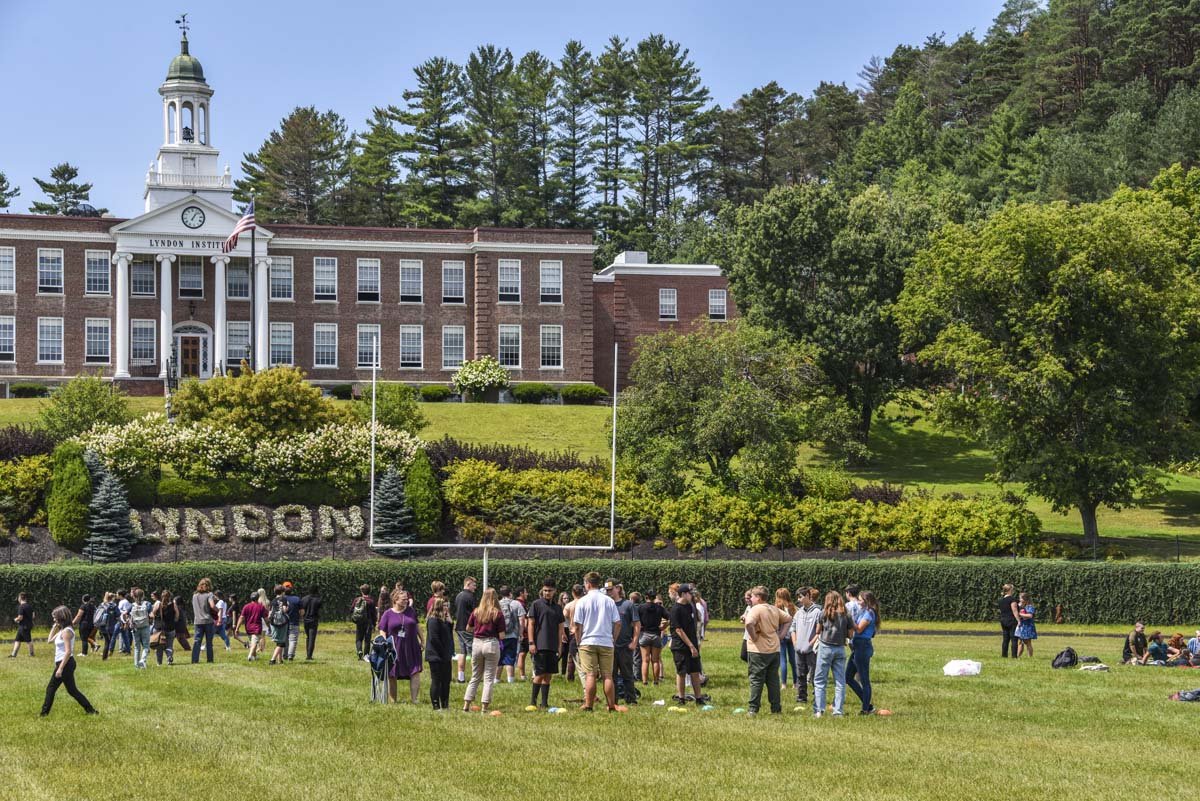- Our School
- Admissions
-
Academics
- Divisions and Faculty
- Commencement 2024
- January Term
- International Program (ESOL)
- College and Career Counseling
- Upward Bound
- Library/Monahan Academic Commons
- Career/Technical Education
- Lyndon Learning Collaborative
- Flexible Lyndon Institute Pathways (FLIP)
- Specialized Instruction
- Adult Continuing Education
- Lyndon Institute Course Catalog
- Student Services
- Arts
- Athletics
- Campus Life
- Support LI
- Alumni
« Back
Taking the Outdoors to a New Level at Lyndon Institute
October 4th, 2021
By David Stahler Jr.
In 2018, Lyndon Institute broke ground on a new program—the first of its kind in the state. Project Bike Tech was a program in the Career and Technical Education department designed to allow students to become fully certified bike technicians, a viable career path in the field of outdoor recreation. In an area that hosts The Kingdom Trails, one of the country’s finest networks of mountain biking trails, and in a sport that has seen an explosion of interest in recent years, it was an especially marketable skill.
This year, LI has expanded the program, giving it a new name, a widened scope, and a fresh face in the classroom. Still housed in the CTE department, Outdoor Recreation, taught by Anna Saco, will still offer bike tech instruction. However, the course will be folded into a broader class that also introduces a range of new skill sets and experiences that students can use as springboards toward new careers or as simply a more meaningful and confident way to engage with the outdoors.
The program’s primary offering is a full-year, two-block (half-day) course, allowing lots of time to explore a range of topics.
“We begin with a unit on land use,” Saco says. This includes a study of the “Tragedy of the Commons,” a classic work of economic science that teaches important lessons about land management, modern sustainability, and developing a respect for the environment. Respect is reinforced with lessons on the practice of “Leave No Trace,” an ethos focused on minimizing one’s impact on natural spaces and one that has become the law on most state and federal public lands.
This study is followed by a sequence of interconnected units. Students are taught survival skills, such as shelter building and fire making, as well as learning how to cook outdoors and purify water. This is followed by a unit on trip planning, including developing orienteering skills with map building and navigation tools. “We want our students to not only survive but thrive in the wilderness,” Saco says.
Beyond learning skills that enhance one’s personal experiences in the wild, Saco says other units will focus on potential career opportunities related to the outdoors. “We hope to explore everything from wildland fire fighting to search and rescue to trail work and wilderness restoration to game warden careers, even a snow science and avalanche rescue unit. Along the way, we’ll embed skills like wilderness first aid, self-care, and good decision making in the outdoors.”
Teaching and leadership skills will also be incorporated into each unit. “We hope our kids can become good stewards of nature and use their knowledge to help and train others,” Saco said. As the program develops, she is exploring ways for her students to work with younger students at the Thaddeus Stevens School—currently hosted next door on the Lyndon Institute campus—and hopes to collaborate with Sterling College in nearby Craftsbury.
Not only is Outdoor Recreation a new program for LI, like its predecessor, Project Bike Tech, it’s the first CTE program of its kind in the state. “Several states that are stakeholders in the industry have programs like this, but we're the first certified CTE program in Vermont.”
As forProject Bike Tech, while it isn’t currently a part of the curriculum since this year’s students have already completed the program, that will change moving forward. In the meantime, other students who wish to learn bike repair will have an opportunity this year in one of the program's two other classes.
Intro to Outdoor Recreation is a one-semester course offered during a forty-five-minute period of the school’s longer lunch block and helps serve as a feeder course for those who may be interested in pursuing the full half-day program. Approximately half the course incorporates a major section of the original bike tech program, offering students an opportunity to receive their Level 1 bike tech certification, a Park Tool Basic Mechanic certificate that is recognized worldwide. “The rest of the class is a sampler of units from the full Outdoor Recreation course,” Saco says. “The hope is that by getting a little taste of everything, those who enjoy the experience and see the value in it will be interested in committing to a more in-depth experience next year.”
Though Mike Lowe, Project Bike Tech’s first instructor, now serves as Lyndon Institute’s Chief Operating Officer, he still takes time to help with the bike repair portion of the class. Though bike tech is no longer the primary focus, he’s pleased with the program’s direction, saying, “To me, this was always the end goal. We wanted Project Bike Tech to become a part of a much larger curriculum that covers all outdoor recreation.”
Ecology and Natural Resources is the program’s third course. A full-block class that runs one semester, it combines many of the themes of Outdoor Recreation with science-based study. In fact, enrolled students will receive a full science credit on their transcript in addition to their normal CTE credit. The class’s scope includes many elements of a traditional environmental science class, including a study of ecosystems, biomes, food webs, and trophic cascades. “In the process,” Saco says, “students will also learn how all these elements impact recreational use of our natural resources, as well as lots of practical skills, like learning to identify tree and plant species in their environment.” Saco hopes to have her students explore other topics, such as the reintroduction of species like the gray wolf and its impacts on the ecosystem.
Saco brings an impressive resume to the classroom, with an emphasis on practical experience in the field. Her roots lie in New England. “I grew up doing stuff outside. I’m a life-long skier. You could say my parents are old ski bums,” she jokes. Her family’s connection to the White Mountains in New Hampshire was an especially important part of her upbringing. Love of the outdoors led her to attend Green Mountain College in Poultney, Vermont, from which she graduated in 2013 with a double major in Natural Resources Management and Environmental Science, accompanied by a minor in Geology.
In the years since, Anna has done it all, from working as a caretaker at the Tuckerman’s Ravine shelter near Mt. Washington to serving on ski patrol at various mountains. Her journey took her out West for a while, to Colorado and Montana, where she worked as a backcountry horseback guide and at a fish hatchery, among other jobs. After returning to the Northeast, she worked for the Nature Conservancy helping manage controlled burns in New England and with the Northwoods Stewardship Center in East Charleston, Vermont. Before coming to Lyndon Institute, she most recently worked at a school for students with special needs in Essex Junction, Vermont.
Now, as the instructor of the Outdoor Recreation Program, Saco is excited to bring together all her real-world experiences and skills and share them with LI students in the classroom and in the field, both around campus and through local and regional trips where they can apply their knowledge directly in the field as the program grows.
“In the meantime,” Saco says, “the program is looking to add members to its advisory board. And, in particular, we’re especially interested in anyone who is willing to help the program by donating gear and supplies for our outdoor excursions.”
In a time of climate change and concerns about diminishing natural resources and habitats, and in a place where enjoying the outdoors and spending time in wild places is so much a part of our local culture and economy, Outdoor Recreation offers LI’s students a chance to grow both personally and professionally and, most importantly, become not only leaders in the field but stewards of one our most precious resources.
Caption: Lyndon Institute Outdoor Recreation/Project Bike Tech instructor Anna Sacco (left) aids freshman Mason McKeon (right) in learning a new climbing knot.
Posted in the category Front Page.

